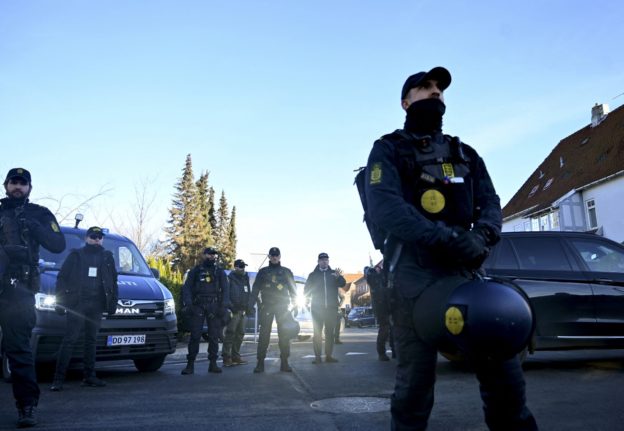Troops have been deployed at three locations in the Danish capital, including at the Krystalgade synagogue, at the request of the country’s police.
“This is due to the changed security situation and threat landscape in Europe and the Middle East,” said the Danish Defence Command (FKO) in a statement.
The soldiers currently deployed on the streets of Copenhagen are drawn from the Royal Guards and will have the same powers as police officers for the duration of this operation. It is not yet clear how long the deployment will last.
Terror plot
The move to deploy soldiers follows a wave of anti-terror arrests earlier in the week.
On Friday, Danish prosecution authorities that six people had been remanded in custody overnight after a police swoop they said prevented a terror attack.
Danish police said Thursday that they had arrested three people in Denmark.
“It was a group that was planning an act of terror,” Flemming Drejer, head of operations at the PET intelligence service, told a news conference.
Danish news agency Ritzau and public broadcaster DR said the arrests were linked to the organised crime gang ‘Loyal to Familia’, which is banned in Denmark.
Ritzau and DR said the three arrested were two men and a young woman. One of the two men was released, they said.
Anti-Danish sentiment
Over the summer, Denmark and neighbouring Sweden became the target of anger in several Muslim countries after a slew of protests in Scandinavia involving burnings and desecrations of the Koran.
In Iraq, nearly a thousand protesters attempted to march on the Danish embassy in Baghdad’s fortified Green Zone in late July following a call by firebrand cleric Moqtada Sadr.
Between July 21 and October 24 this year, 483 book burnings or flag burnings were recorded in Denmark, according to national police figures.
In response Denmark’s parliament adopted a law earlier this month that criminalises the burning, tearing or otherwise defiling of religious texts such as the Koran.
In 2006, a wave of anti-Danish anger and violence erupted in the Muslim world following the publication in the small Nordic country of cartoons of the Prophet Mohammed.
And in February 2015 a gunman who had voiced allegiance to the Islamic State (IS) group opened fire at a cultural centre in Copenhagen that was hosting a forum on Islam and free speech.
Last year, a Danish court sentenced an IS sympathiser to 16 years in jail for plotting a bomb attack. The verdict was the most severe ever handed down under Denmark’s anti-terrorism laws.



 Please whitelist us to continue reading.
Please whitelist us to continue reading.
Member comments